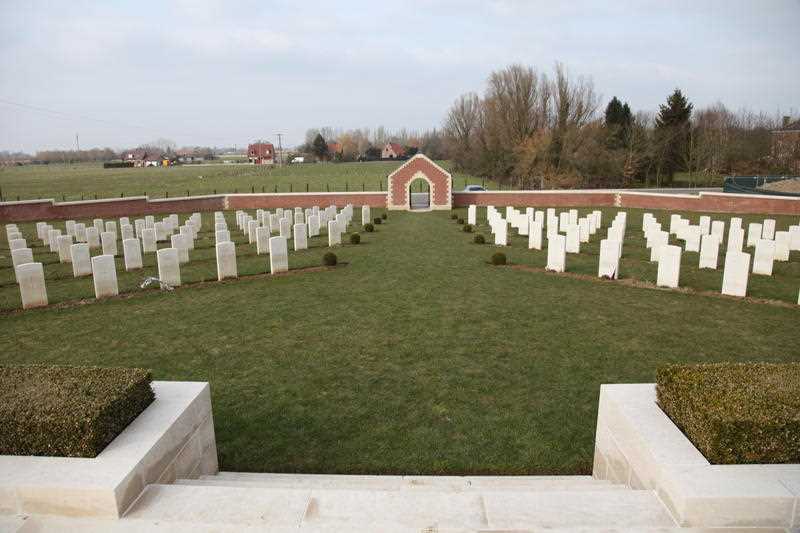Private William Keating was one of three West Australian brothers who served overseas in World War I, but only one of them returned home.
A year before his younger brother Tommy died in action in Belgium, William is believed to have been killed at the Battle of Fromelles in northern France at age 25.
The horse driver, whose family came from Geraldton and Northampton in WA’s midwest, was sent to the trenches in July 1916, a year after he enlisted in the army.
The first major engagement by Australian troops on the Western Front, the Battle of Fromelles proved a disaster.
A poorly disguised “feint” intended to draw German troops away from the Somme, it led to the deaths of more than 5500 Australians in less than 24 hours.
The remains of 250 soldiers were recovered in 2009 from an unmarked mass grave at nearby Pheasant Wood and were later reburied. Since then, 168 have been formally identified through genealogical testing.
William is believed to be among the 82 whose identities remain unknown.
“We picked up Keating because of an interest in the fact that he was identified as having been in the trenches before the Australian forces withdrew,” Fromelles Association of Australia president Geoffrey Benn told AAP.
“So the Germans probably buried him because he was in that area that had the highest concentration of soldiers recovered and buried by the Germans.
“We think statistically, the chances are that he’s there.”
The association is calling for people who may recognise William’s story or hail from the Geraldton region to come forward.
“We’ve got a process that we use to try and identify the DNA strands and find a donor out in the real world … and ask if they’re interested in submitting a sample,” Mr Benn said.
“If they are and the ancestral connections check out, the army then contacts those people and asks them to provide a sample with a swab.”
The sample is sent to a laboratory in the United Kingdom and the results are provided to the army.
“We wait just like the relatives do,” he said.
Hundreds of hours of meticulous research can go into finding just one potential donor but that time-frame can be dramatically shortened as a result of members of the public coming forward with information.
One example is the story of Private Peter Shannon, who was born in Ireland and emigrated to Australia as a child before joining the army and being killed in the Battle of Fromelles.
A story published about him in an Irish newspaper in 2016 was sent to a Dublin man named Pat Shannon, who was convinced to provide a DNA sample.
The sample provided proof of a genealogical link and Pte Shannon was remembered at a dedication ceremony in Fromelles two years later.
“You just never know,” Mr Benn said.
“He never knew anything about him. It’s only because his surname was the same and it was in the newspaper and someone pointed it out.”
Like Pte Shannon, William Keating had no known children.
The volunteer-run association hopes to strike luck again in identifying him, mindful of the race against time to find answers.
“Each generation loses a bit of information from the one before,” Mr Benn said.
“We’re just trying to find the families. The race against time is to try and get them before the families might not have any surviving relatives so that we lose the ability to actually test someone at all.”
By Michael Ramsey in Perth



